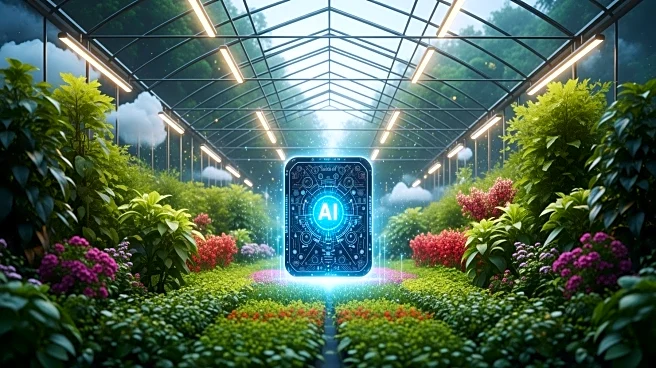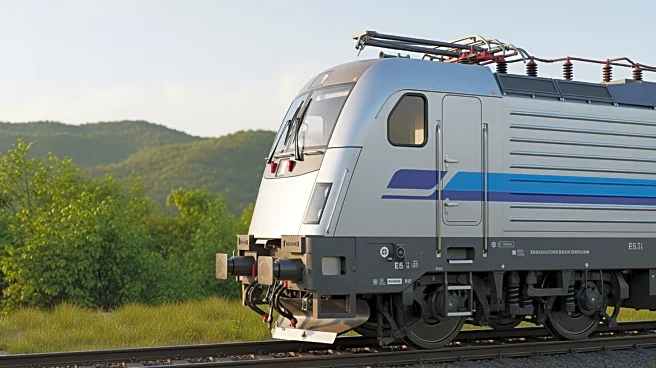What's Happening?
NoMaze, a software development company based in Munich, Germany, is transforming plant breeding practices with its new AI-driven tool, SmartPlot. This innovation aims to assist plant breeders and researchers
in adapting to rapidly changing climate conditions. SmartPlot allows users to simulate future climate scenarios, helping them make informed decisions about crop selection and development. According to NoMaze CEO Jean-Pascal Lutze, the tool can significantly reduce the time and cost associated with traditional plant breeding, which typically takes five to ten years. The tool was showcased at the World Agri-Tech Innovation Summit in London, highlighting its potential to address challenges posed by rising global temperatures and extreme weather events.
Why It's Important?
The introduction of SmartPlot is significant as it addresses the pressing issue of declining agricultural productivity due to climate change. By enabling more precise farming and improving crop yields through advanced monitoring and forecasting, the tool can enhance food security globally. This innovation is particularly crucial as regions worldwide face increased risks of crop failures due to heat stress, droughts, and floods. However, the widespread adoption of AI in agriculture also raises concerns about high energy consumption and its environmental impact, such as increased carbon emissions. Balancing these benefits and drawbacks will be essential for sustainable agricultural practices.
What's Next?
As NoMaze continues to develop and refine SmartPlot, the agriculture industry may see a shift towards more technology-driven practices. Stakeholders, including farmers, researchers, and policymakers, will likely evaluate the tool's effectiveness and its potential to mitigate climate-related agricultural challenges. The success of SmartPlot could lead to broader adoption of AI technologies in agriculture, prompting further innovations and investments in sustainable farming solutions. Additionally, discussions around the environmental impact of AI usage may influence future regulatory and policy decisions.
Beyond the Headlines
The deployment of AI tools like SmartPlot could lead to long-term shifts in agricultural practices, emphasizing the need for sustainable energy solutions to power such technologies. Ethical considerations regarding data privacy and the equitable distribution of technological benefits may also arise. As AI becomes more integrated into agriculture, the industry might experience cultural changes, with traditional farming methods evolving to incorporate advanced technologies. This transition could redefine the roles of farmers and researchers, necessitating new skills and knowledge in the workforce.









